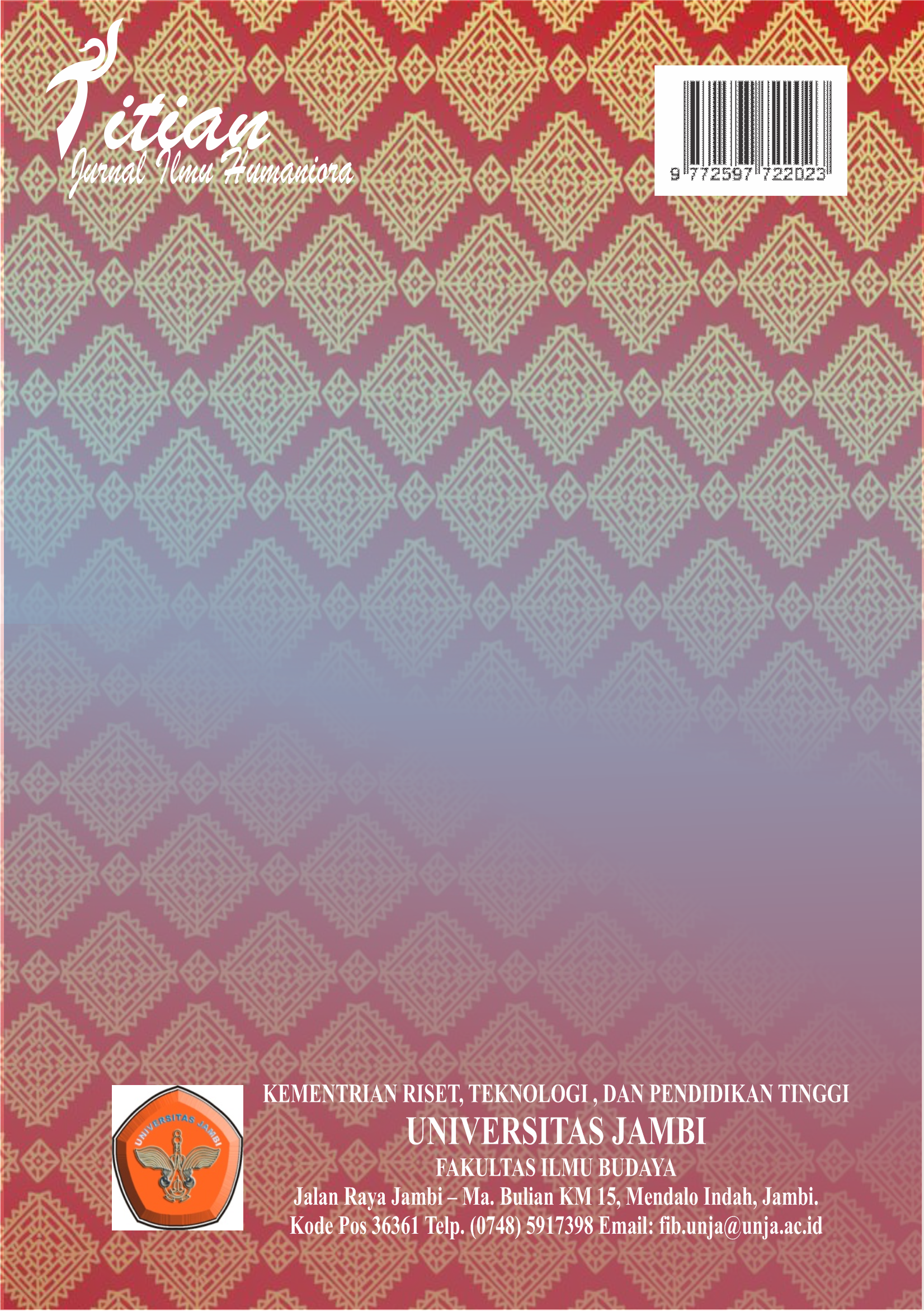The ‘Then’ and ‘Now’ Environmental and Security Obstacles and Prospects of Maritime Industry in Nigeria
DOI:
https://doi.org/10.22437/titian.v7i2.29720Keywords:
Environmental pollution, Goods and Services, Transportation, Maritime, HermeneuticsAbstract
The movement of goods and services along inland waterways is one of the oldest means of transporting goods and services from one point to another. However, the inland waterways in Nigeria, including navigable rivers, lakes, creeks, lagoons, and canals, face numerous problems and obstacles, such as sea piracy, terrorism, smuggling, kidnapping, and pollution. These and a host of other issues have truncated the achievements and development of the Nigerian maritime industry. However, to deal with the highlighted issues and excel in the maritime industry, there is a need to guard against environmental pollution through the application of environmental ethics and secure the inland waterways using maritime security operatives and agencies. Hence, inland water transportation offers the most economical, energy-efficient, and environmentally sustainable means of transporting all types of cargo from place to place. In view of this, Africa in general and Nigeria in particular should reflect on the development and management of this sea-borne trade, which is critical and cardinal to the development of international trade with other nations of the world. Since maritime transport is the propelling anchor and evolving force that brings about substantive revenue and helps in the survival of both national economic growth and the exportation of hydrocarbons, we used the hermeneutical method of philosophy to drive home the points of this research.
Downloads
References
Adelaja, A., Abdullahi, L., & Penar, E. (2018). “Public Opinion on the Root Causes of Terrorism and objectives of Terrorists: A Boko Haram Case Studyâ€. Perspective on Terrorism, 12 (3). Pp 35-49.
Alari, Faith E. (2019). “The Maritime Industry of Nigeria: Challenges and Sustainable Prospectsâ€. Danubius Working Papers. Vol.1 (1). Pp 20-31.
Badejo, Bamidele (2014). “Maritime Transportation Industry in Nigeria: Structure, Analysis, Challenges and Prospectsâ€. https://www.academia.edu/1562351/maritime _transportation_industry-in-nigeria_structure_analysis_challenges_and_prospects. Retrieved 1 April 2023.
Big-Alabo, S and Ezugwu, U. (2022). “The Importance of Philosophy in Resolving Nigeria’s Security Issuesâ€. Research Journal: Public Security and Public Order, (30). Pp 34-44.
Bindraban, P. S. (2012). “ISRIC Study: Assessing the Impact of Soil Degradation of Food Productionâ€. Current Opinion in Environmental Sustainability, (2). Pp 311–323.
David, Matej and Gollasch Stephan (2015). “Global Maritime Transport and Ballast Water Management Issues and Solutionâ€. Springer Nature, l (8). DoI:10.1007/978-94-017-9367-4.
EkpenyongNsa, Mathew (2018). “Problems and prospects of Developing Inland water Transportation in Nigeria: The Case of Calabar River1 TPIâ€. https://www. semanticscholar.org/paper/Problems-and-Prospects-ofDeveloping-Inland-Water-%3A-EpenyogNsa/ffc492afcdoaa50dd7671f59d509f4024ad6247a. Retrieved 2 April 2013.
Ephraim, Stephen. (2019). “The Challenges and prospect of Maritime Industry in Nigeriaâ€. Danubius Working Papers.1 (1). Pp 43-57.
Essien, B. S and Adongoi, T. (2015) “Sea Piracy and Security Challenges of Maritime Business Operation in Bayelsa State, Nigeria: An Empirical Studyâ€. International Journal of Humanities and Social Science. 5 (2). Pp 2013-221.
Ezem, F. (2012). “Challenges of curbing criminality in Nigeria’s Maritime Domainâ€. National Mirror, December. Retrieved 2 April 2023.
Ezugwu, U., Ezeogu, U., & Opuowei, J. (2022). “Bionomical Terrorism: The Challenge for Contemporary Nigerian Leadershipâ€. Research Journal: Public Security and Public Order. (32). Pp 68-77.
Ezugwu, Umezurike J. (2022). “Environmental Degradation and Its Implication for Environmental Sustainability in the Niger Delta. In Handbook on Research: Connecting Philosophy, Media, and Development in Developing Countries. Desmond Onyemach O. et al (eds). Hershey: IGI Global. Pp. 354-351.
Igbokwe, M. I. (2012). “Recent Development in Nigeria Maritime Law and Practice: Piracy and unlawful Acts at seaâ€. 12th Maritime seminar for Judges.5th -7th June, Abuja 28th.
Ihenacho, E, (2010). “An Appraisal of the the Operational Limitations of the Private Terminal Concessionaires in a Lanlord Port Modelâ€. Continental Journal of Social Sciences 6(1). Pp 9-16.
Inyang, B. (2019). “Environmental Degradation and Sustainable Development in Nigeria: A Study of the South-South Region of Nigeriaâ€. International Journal of Humanities Social Sciences and Education, 6(8). Pp 33-42.
Ndikom Obed, B.C., Buhari, S.O, Okeke, O.K and Mathew, W. (2017). “Critical Transportation in Nigeria: The Case of Calabar Riverâ€. https://www.iosrjournals. org/iosr-jhss/papers/vol.%20213%20Issue7/Version-9/E2307092737.pdf. Retrieved 1 April 2023
Ndikom, B.C; Buhari, S.O; Okeke, O.K and Matthew W. S. (2017). “Critical Assessment of Maritime Industry in Nigeria: Challenges and Prospects of Policy issuesâ€. African Journal for the Psychological Study of Social Issues. 20 (3). Pp 113-131.
Ochai, P. (2013). “Owners of fishing trawlers want the Federal Government to save their business from the increasing attacks they encounter from sea piratesâ€. Thisday Newspapers, January 7.
Onuoha, F.C. and Hassan, H.I. (2009). “National Security implications of sea piracy in Nigeria’s Territorial watersâ€. The Nigerian Army quarterly Journal, 5 (1). Pp 1 – 28.
Downloads
Published
How to Cite
Issue
Section
License
Copyright (c) 2023 Sotonye Big-Alabo, Umezurike J Ezugwu

This work is licensed under a Creative Commons Attribution-ShareAlike 4.0 International License.































